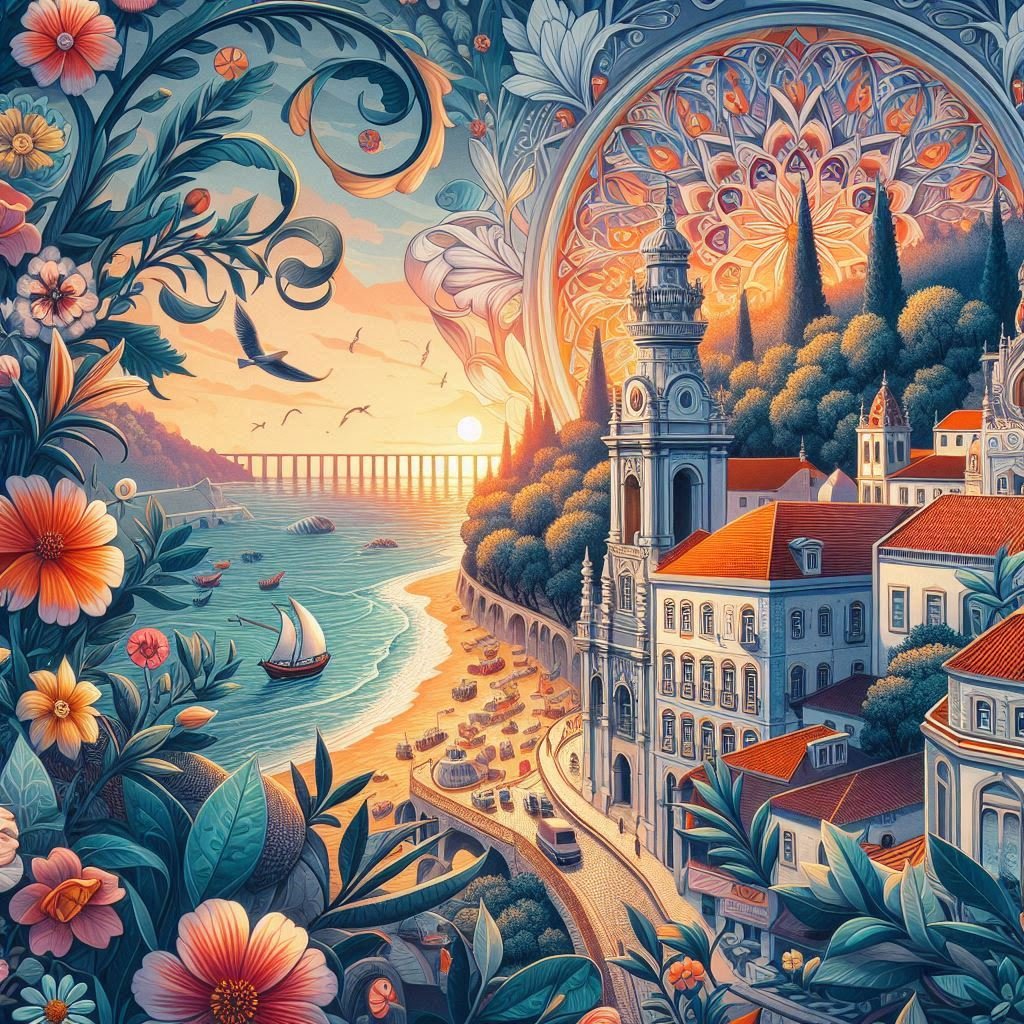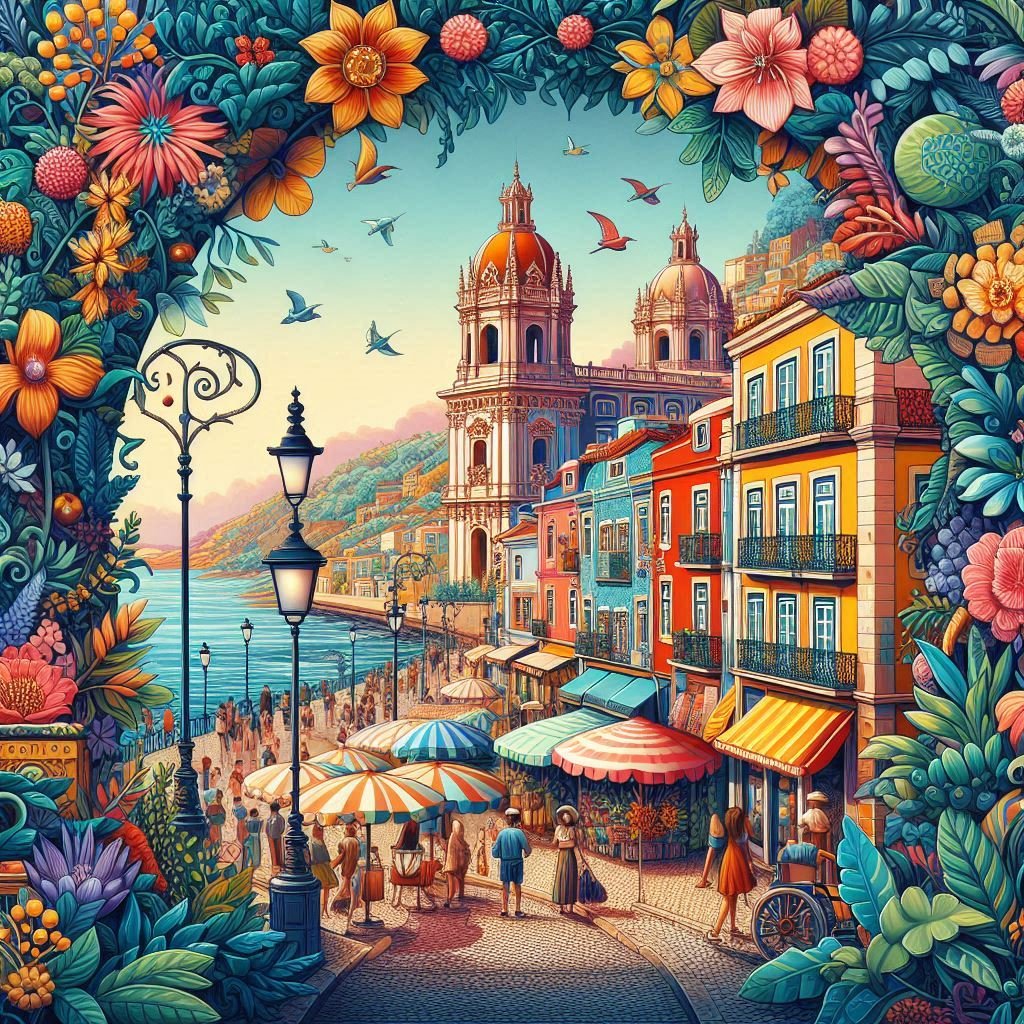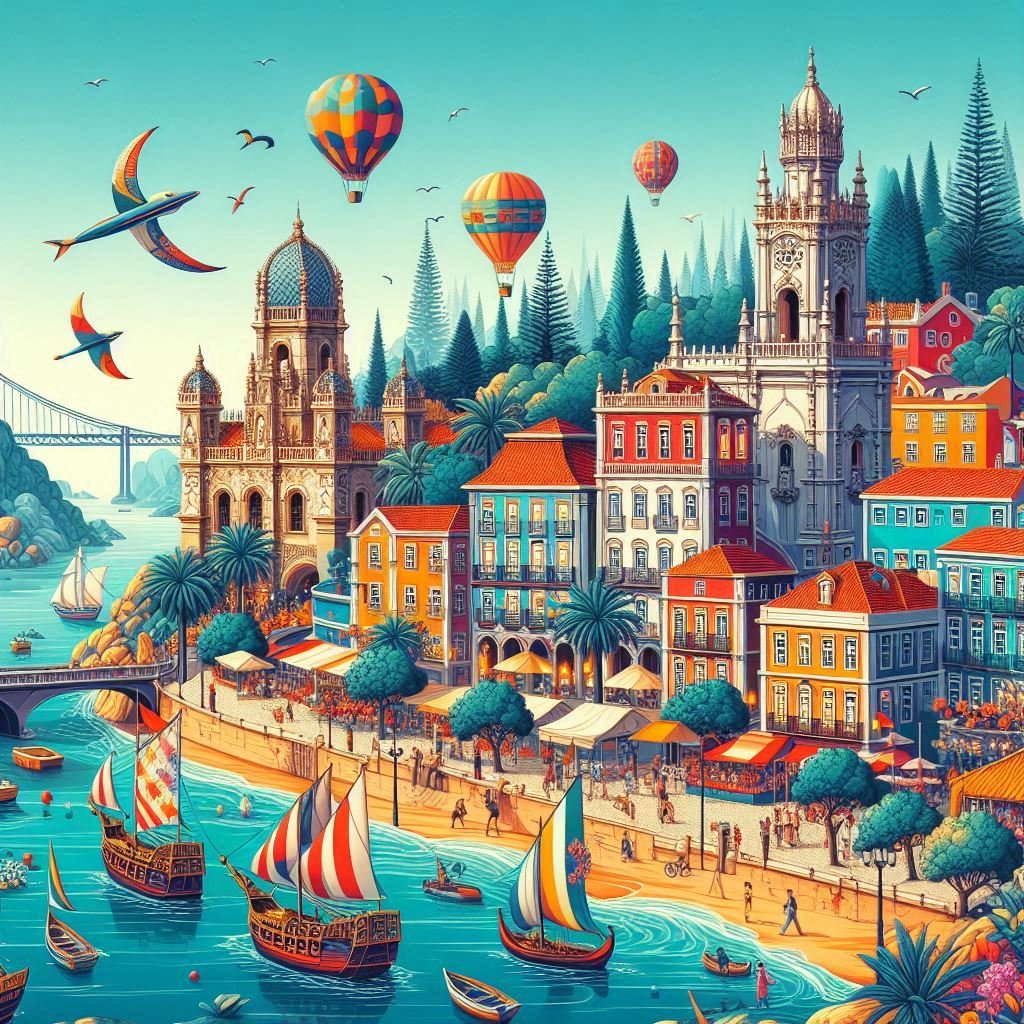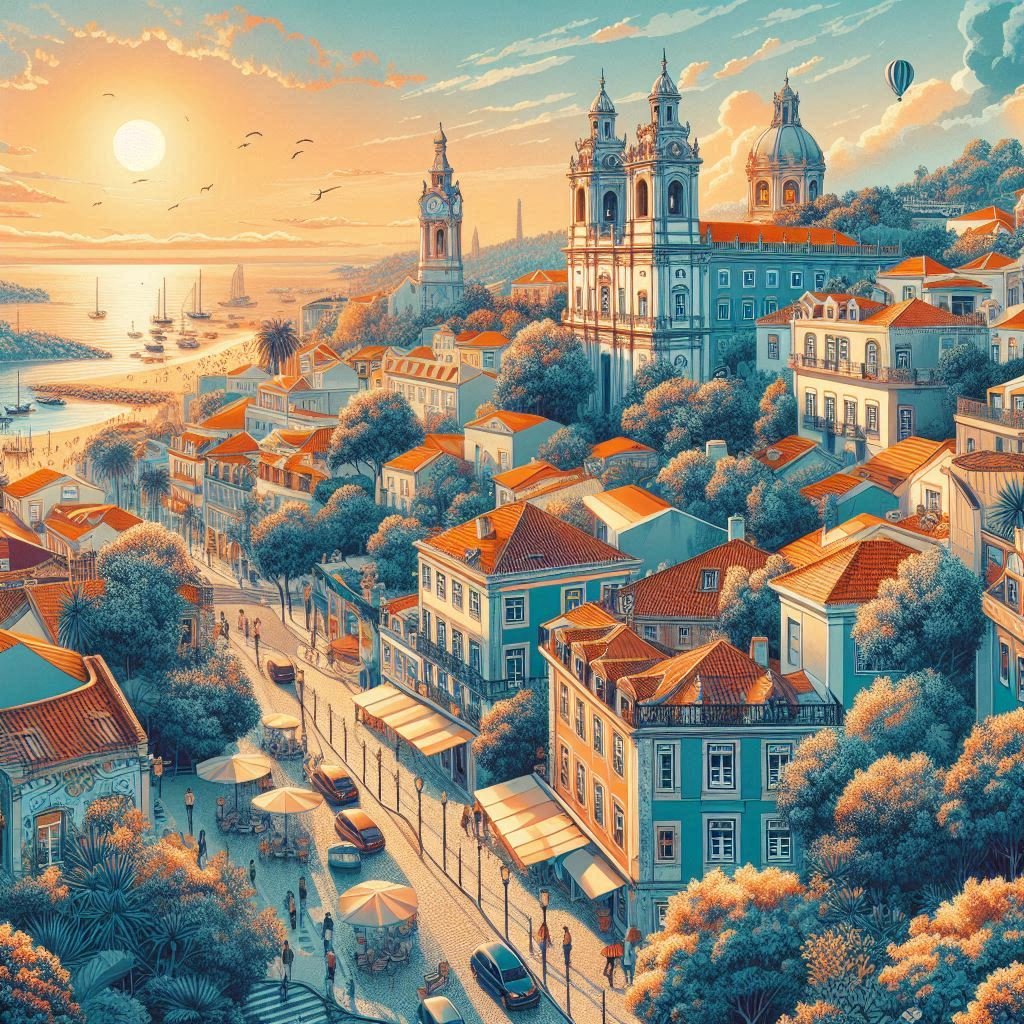Best Time to Travel to Portugal
Portugal, which is found decisively on the Iberian Landmass, has, in the past, ended up being one of the most sought-after traveler objections across the globe. Forcing history, wonderful seashores, throbbing urban communities, and tasty food—every one of these makes a fairly solid impetus for individuals to begin looking for the solution to the subject of when is the best chance to head out to Portugal?
We will examine the Best Time to Travel to Portugal for example, climatic, swarmed, and merry. We will likewise uncover a few spots you ought to visit in this nation and a few magnificent food sources that you can force in transit.

What time of the year is it good to travel to Portugal?
How about we separate the various seasons and what they offer? Let’s separate the various seasons and what they offer:
Spring (walk to May):Best Time to Travel to Portugal
They likewise suggested that spring is one of the most ideal seasons to visit Portugal. The environment is gentle and charming; temperatures are somewhere in the range of 15 and 25 degrees Celsius, 59 and 77 degrees Fahrenheit. Pre-fall is ideal with regards to climate as it isn’t very blistering like in midsummer, yet it is definitely not a famous time for the travel industry, as, for example, in May or June.
Pros of spring travel:
- nice bouquet and beautiful scenery
- Conditions of visibility and comfortable outdoor activities
- Hence, this puts the prices of accommodations and flights at a lower level.
- Partying is another common feature in a country’s annual calendar, and some of the prominent festivals that are held are the Festa de São João in Porto.
Cons of spring travel:
- There is some rain at infrequent intervals, and it mostly occurs in the early spring season.
- Due to these, some of the coastal areas could still be rather cool for swimming.
Summer (June to August):Best Time to Travel to Portugal
The best time to visit Portugal is during the months of June through August, because it is summer and ideally the most appropriate time to travel. The climate is good and dry with bright sunshine; it is appropriate for those who intend to go to the beach. But you will also meet a lot of people and pay the most at this point too. Your hair will also become grayer because you will worry a lot.
Pros of summer travel:
- relatively long days with a small amount of sunlight during the time of year
- Ideal beach weather
- Many festivals and other open-air activities were detected.
- Being cheerful throughout the great cities and places next to the sea.
Cons of summer travel:
- Social activities in areas offering many attractions to the public
- Tightly linked to it are the observations of an increase in accommodation prices and flight tickets.
- high temperatures, especially for regions located in the interior parts of the country.
- Fall (September to November)
As for the weather, it is still hot, slightly cooler in September and early October, and it is less crowded.
Pros of fall travel:
- Moderate temperature for pleasant touring and especially for sight-seeing.
- Less than those observed during the summer.
- Country scenery in the season of fall
- Harvest time of the grapes for winemaking in the Alle «Douro Valley»
Cons of fall travel:
- Higher probability of rainfall, particularly in the month of November
- Some coastal resorts may begin to close for the season.
Winter (December to February):Best Time to Travel to Portugal
The latter is especially true since winters in Portugal are comparatively warmer than the cold that dominates in many other countries in Europe. However, it has to be mentioned that this season favors more rainfall and relatively low temperatures.
Pros of winter travel:
- Posting everyday low prices for rooms and flights.
- Visiting popular places with fewer people
- Religious, Christian, and other end-of-year and new-year festivities
- Chances to get to know Portugal’s cuddle side
Cons of winter travel:
- Increased chances of rainfall, and temperatures lowered a bit.
- Shorter daylight hours
- Some of the places of interest, together with restaurants and other eating places, may be closed or open for a limited time.
Some of the recommended tourist attractions that are found in Portugal include
It is imperative to take note that the planning of venturing out to Portugal enormously relies upon the expected vacation spots inside the country. Here are a portion of the country’s most famous spots: Here are a portion of the country’s most well-known spots:

Lisbon
It is known that Lisbon, the capital of Portugal, merits visiting at any time of the year. Consequently, Lisbon can really be viewed as the city that brings something to the table for everybody, with its set of experiences, wonderful perspectives, and energetic gastronomy. The ideal time for a Lisbon excursion could be in the spring or likely in the pre-winter season, when the weather conditions are fine to go walking on the somewhat disposed streets of the city.
Porto
Famous for its port wine and the beautiful Ribeira district, Porto is another non-seasonal city. But the best time to visit Portugal for a Porto trip may be in the middle of the year, probably during June during the São João Festival.
Must-Try Portuguese Foods:Best Time to Travel to Portugal
Bacalhau (salt cod): It is believed that there are a total of 365 ways in which one can cook fish. Named ‘Kalon/Kalumm,’ this versatile fish dish is cooked in a simple style and is unbelievably delicious.
Pastéis de Nata: These delicious pastries are a true delight of Portuguese cuisine, best served hot with creamy custards.
Francesinha: A large sandwich hailing from Porto with meat in the middle, cheese melted on top, and a spicy tomato sauce.
Caldo Verde: According to my suggestion, she should try a warm soup that is preferred on cold days: potatoes, kale, and chorizo.
Sardinhas Assadas: Sardine barbecues are seen commonly at the Santos Populares festivals in June, which is the best time for the dish.
Queijo da Serra is a rich sheep cheese from the Serra da Estrela, Portugal.
Vinho Verde: A rather clear and refreshing vodka that has a bit of fizz to it—a champagne.
Special Events to Consider
When planning the best time to travel to Portugal, you might want to align your trip with some of the country’s exciting events:
Carnival (February/March): Observed annually across the country, with manifestations in Lisbon and Torres Vedras.
Holy Week (March/April): more particularly the processions and Christian festivities, especially in Braga city.
Santos Populares (June): public festivities that last for a month, and this call for carnivals, which are characterized by street feasts, especially in the major cities of Lisbon and Porto.
NOS Alive (July): A well-known musical event in Europe that takes place near Lisbon, Portugal.
Festa do Colete Encarnado (July): A familiar bullfighting fiesta in Vila Franca de Xira.
Feria de São Mateus (August/September): It has been a specific fair of products to music, food products, and handicrafts in Viseu.
Christmas and New Year’s Eve: Parties across the nation, and particularly big firework shows in Madeira.

Conclusions about Best Time to Travel to Portugal
Therefore, it is impossible to distinguish the more precise time to visit Portugal because it depends on the individual’s priorities and plans. Portugal is always beautiful, no matter what time of the year, whether you are interested in volleyball, sandy beaches, art, or local food.
Looking at the scenario from the perspective of good weather or fewer crowds during the visit, the spring and fall seasons appear to provide the best time to visit Portugal. Summer could be a favorite season for those fond of the sea and festivals, while winter can get lazy and not as pricey.


Thank you for this comprehensive guide on the best times to visit Portugal in 2024. It’s incredibly helpful to have detailed information on seasonal weather patterns, festivals, and key events to plan a trip that maximizes the experience. Such insights enable travelers to make informed decisions and enjoy everything Portugal has to offer, from its stunning coastlines to its rich cultural heritage.